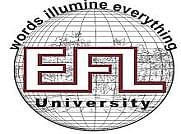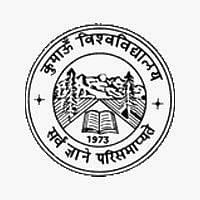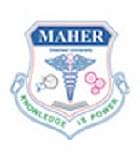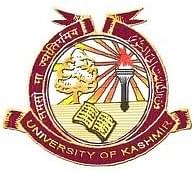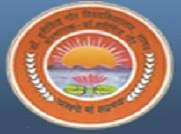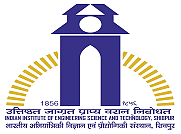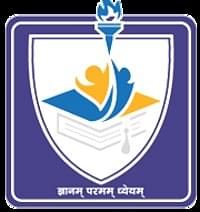Preserving the Past, Shaping the Future: Pursuing a Ph.D. in Museum Studies
Museums serve as guardians of history,
culture, and art, offering invaluable insights into the past while educating
and inspiring future generations. For those passionate about this vital work, a
Ph.D. in Museum Studies presents an exceptional opportunity to delve
deeper into the field, develop specialized expertise, and contribute to the
preservation and interpretation of cultural heritage. This blog will explore
the intricacies of pursuing a Ph.D. in Museum Studies, from the admission
process to potential career paths.
Understanding
the Scope of Museum Studies
Museum Studies, also known as Museology, is an
interdisciplinary field that encompasses various aspects of museum work,
including collection management, curation, conservation, education, and
administration. A Ph.D. in Museum Studies allows students to specialize
in these areas, conduct original research, and develop advanced knowledge and
skills needed to lead and innovate within the museum sector.
The
Importance of a Ph.D. in Museum Studies
- Expertise and Specialization: A
Ph.D. program provides in-depth knowledge and specialized training,
enabling graduates to become experts in specific areas of museum work,
such as conservation science, digital curation, or museum education.
- Research and Innovation:
Doctoral students engage in original research, contributing to the
advancement of museum practices and policies. This research can lead to
new methods and technologies for preserving and presenting cultural
artifacts.
- Career Advancement: A
Ph.D. opens doors to higher-level positions in museums, academia, and
cultural institutions. Graduates are well-equipped for roles such as
museum directors, curators, conservators, and educators.
- Global Perspective:
Museum Studies programs often emphasize global and cross-cultural
perspectives, preparing students to work in diverse cultural settings and
address international issues in heritage preservation.
Admission Process Ph.D. Museum Studies
The admission process for a Ph.D. in Museum
Studies typically involves several key steps:
- Academic Requirements:
Candidates usually need a master’s degree in Museum Studies or a related
field (e.g., History, Art History, Anthropology). A strong academic record
and relevant coursework are essential.
- Research Proposal:
Applicants must submit a research proposal outlining their intended area
of study, research questions, and methodology. This proposal should
demonstrate the candidate’s ability to conduct independent research and
contribute to the field.
- Letters of Recommendation: Most
programs require letters of recommendation from academic or professional
references who can attest to the applicant’s qualifications and potential
for success in a doctoral program.
- Statement of Purpose: A
statement of purpose is a critical component of the application,
explaining the candidate’s motivations for pursuing a Ph.D., their
research interests, and career goals.
- Interviews: Some
programs may require interviews with faculty members to assess the
applicant’s fit for the program and discuss their research proposal in
more detail.
- Standardized Tests:
While not always required, some programs may ask for GRE scores or other
standardized test results.
Curriculum
and Syllabus Overview
A syllabus Ph.D. in Museum Studies typically
includes a combination of coursework, comprehensive exams, and dissertation
research. Here’s an overview of the curriculum components:
- Core Courses:
These foundational courses cover essential topics such as museum history
and theory, collection management, curation, conservation, and museum
education. They provide a solid grounding in the principles and practices
of museum work.
- Specialization Courses:
Students can choose from a range of elective courses to tailor their
studies to their specific interests and career goals. Specializations
might include digital humanities, public history, heritage management, or
specific types of collections (e.g., art, natural history, or ethnographic
collections).
- Research Methods:
Courses in research methods equip students with the skills needed to
design and conduct rigorous research. This may include qualitative and
quantitative research methods, archival research, and digital
methodologies.
- Professional Development: Many
programs offer seminars and workshops focused on professional development,
including grant writing, project management, and career planning.
- Comprehensive Exams:
Before advancing to the dissertation stage, students must pass
comprehensive exams that test their knowledge of the field and their
readiness to undertake original research.
- Dissertation: The
dissertation is the cornerstone of the Ph.D. program. Students conduct
original research on a topic of their choice, contributing new knowledge
to the field of Museum Studies. The process includes proposal development,
research, writing, and defence .
Potential
Career Paths
Graduates with a Ph.D. in Museum Studies are
equipped for a wide range of careers in museums, cultural institutions,
academia, and beyond. Here are some potential career paths:
- Museum Director:
Overseeing all aspects of museum operations, from collections and
exhibitions to education and administration.
- Curator: Responsible for the acquisition, care,
and display of museum collections. Curators also design and organize
exhibitions.
- Conservator:
Specializing in the preservation and restoration of cultural artifacts,
ensuring they remain in good condition for future generations.
- Museum Educator:
Developing and delivering educational programs for museum visitors,
including school groups, families, and the general public.
- Academic Researcher:
Conducting research and teaching in university settings, contributing to
the advancement of Museum Studies and training future museum
professionals.
- Heritage Manager:
Working with government agencies or private organizations to manage and
protect cultural heritage sites and collections.
- Digital Curator:
Using digital technologies to curate and present collections online,
making them accessible to a global audience.





